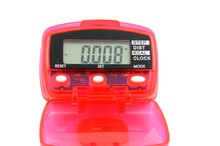What Happens If I Eat After 6 PM?
You may have heard that eating after 6 p.m. -- or 7 p.m. or 8 p.m. -- causes you to gain weight. The premise behind this myth is that because you go to bed before you have time to burn the calories, late-evening meals turn into fat. In reality, however, the timing of your meals has little to do with weight gain, according to the Weight-Control Information Network. You can work mealtime around your preferences and your schedule without jeopardizing your health or your weight.
Flexibility
If eating after 6 p.m. fits your lifestyle, you can easily accommodate healthful evening meals and snacks that contribute positively to your nutritional and energy needs. Weight-management programs that recommend cutting off food at 6 p.m. across the board not only misrepresent the effects of calories consumed in the evening, but also fail to take into account that evening routines, including bedtimes, vary by individual. One relevant consideration, however, is the quality of the food you consume after 6 p.m.
Food Choices
Will I Gain Weight if I Had 3,000 Calories Today?
Learn More
If you feel that eating after 6 p.m. is sabotaging your health or weight goals, your food choices may be the culprit. Even if you follow healthy eating guidelines up until 6, you can rack up enough calories in the evening to cause weight gain or to interfere with weight loss. One pitfall of eating at night is the tendency to snack while watching television or to throw a meal together haphazardly without regard to balance, the American Council on Exercise explains. Make a conscious effort to include a variety of properly portioned, healthy foods in your evening meals and measure out a serving-sized portion of snacks rather than eat from the bag or container.
Sleep Factors
Sleep disorders or lack of sleep may trigger increased appetite, particularly in women, according to the National Sleep Foundation. Eating and drinking late at night may interfere with a good night's sleep, as can consuming alcohol or caffeine too close to bedtime. If you have trouble sleeping, adjusting your eating schedule and your late-evening menu may help. Consult with your doctor if you have persistant symptoms of insomnia, such as waking up frequently, problems getting to sleep or falling back asleep, difficulty concentrating during the day, problems focusing during the day or if you consistently wake up tired in the mornings.
Considerations
How Long Does It Take to Put on Fat?
Learn More
The number of calories you consume – and not the time of day you consume them – ultimately determines how your meals and snacks affect your weight and health. If the number of calories you burn during daily activity and exercise exceeds the number you consume, weight loss results. However, excess calories – even those consumed early in the day – get stored in fat cells. To stay healthy, eat a variety of healthful foods, exercise regularly, and watch your calories and portion sizes.
Related Articles
References
- University of Pittsburgh Medical Center: True or False: Eating at Night Will Make You Gain Weight
- American Council on Exercise: Is It True That Eating After 8 p.m. Can Make You Gain Weight?
- National Sleep Foundation: Obesity and Sleep
- National Sleep Foundation: Can't Sleep: What to Know About Insomnia
Writer Bio
Pam Murphy is a writer specializing in fitness, childcare and business-related topics. She is a member of the National Association for Family Child Care and contributes to various websites. Murphy is a licensed childcare professional and holds a Bachelor of Arts in English from the University of West Georgia.









